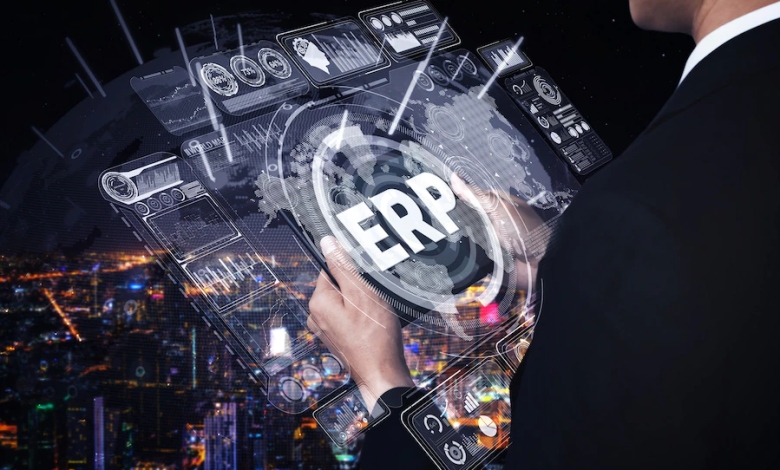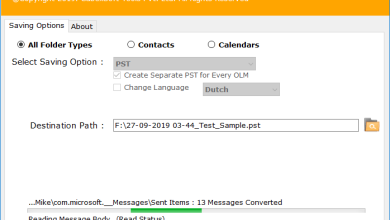
Enterprise Resource Planning (ERP) system, which many businesses use to determine the computing power required to manage complex business processes, has been widely adopted.
It can improve your business’ agility, drive optimal performance, provide visibility and flexibility to employees, increase data security, and help you achieve maximum productivity.
ERP is a complex topic with many options. ERP is an expensive investment for any business. It is therefore important to carefully plan and select the right ERP software.
An ERP application is a core component of business automation. It provides insight and controls and draws on a central database to collect inputs from various departments, including accounting, manufacturing, and supply chain management.
Leaders gain cross-departmental visibility once the information has been compiled in that central database. It allows them to analyse different scenarios, find process improvements, and make major efficiency gains.
It results in cost savings and improved productivity, as people spend less time searching for the data they need.
ERP software tailored to the specific needs of a business pays big dividends. It makes ERP software a crucial tool for all industries and sizes. ERP has been a key tool for many of the most successful and well-known companies over the past quarter-century.
This software is now configurable and priced to suit the needs of any size business. ERP systems help unify core business processes, people, and technology.
Why is ERP important for businesses?
ERP systems are now a key part of businesses that want to make the most of their resources. ERP systems can help business leaders allocate human and financial capital or create more efficient core business processes that reduce costs without compromising quality or performance.
Planning and coordination are also made easier by an ERP. An ERP allows employees to see the current inventory and customer orders and compare supplier purchase orders with forecasted future demand. They can also make necessary adjustments to avoid future problems. ERP software facilitates collaboration and communication. Workers can also check the status of other departments to make informed decisions.
An ERP system provides a comprehensive source of data and a variety of analytics that can make a difference in the business. ERP executives find it invaluable to convert a large amount of data into graphs and charts that show trends and help model results.
These are the best practices for ERP implementation success.
-
Select the Right ERP Software
ERP software has many benefits, including integrated business processes, lower operational expenses, improved reporting capabilities, increased productivity, and data security. Although it can seem overwhelming, it is necessary.
Consider these things when choosing your ERP software:
- Is ERP necessary for your company?
- What ERP software do you need for your business?
- What functions are you looking for?
- How do you implement ERP solutions in your organization?
After identifying these factors, you will be able to decide which software is the best fit for your company. ERP is composed of many procedures tailored to the needs of different departments.
ERP software implementation involves the entire process from selecting the right platform to implement, moving legacy data, configuring integrations, and finally deploying the system.
It is important to choose experienced professionals to help you select the right ERP software. If you have an Oracle Cloud System, it is good to find an Oracle cloud consulting company specializing in this product.
-
Select the Right ERP Partner
Experience is the most important thing when choosing an ERP partner. Choosing an ERP partner who will listen to your needs and offer you effective solutions is important.
Without the right partner, you could be facing hours of frustration and disruption. Your ERP journey will be easier and more manageable if you have the right partner.
Here are some important points to remember when choosing the right partner
Industry expertise. To fully understand your organization and team, your ERP partner must be fluent in the language of your industry. They must be familiar with the regulations and compliance requirements of your industry.
Compatibility with an Implementation Partner For many days, weeks, or months, your team will be working alongside an implementation partner. To increase productivity and profitability for your company, it is important that your team feels comfortable working with the chosen partner.
-
Establish A Strong Project Team
A productive team is essential to the success of an ERP project. It involves selecting the right team members and creating a healthy team structure.
The selection of members should be based on their skills. You will find that they are more likely to be committed to the project if you recognize their abilities and knowledge of advanced technologies. The right team will save you time and money.
-
Analyze Your Business Processes
Regular audits of your business processes can improve efficiency. Spend some time reviewing your business processes. Find out what’s working and what isn’t. A well-designed business process will help you choose the right ERP system for your company. It will also make it easier to implement the system.
-
Get Quality Data
Customers, distributors, and suppliers are the most valuable assets. These data should enter accurately into the solution. Make it relevant, current, easy to decipher, and add value.
- Select an ERP system that adapts to new technologies
Technology advances are improving every aspect of our lives every day. You must choose an ERP system compatible with the new technologies–today’s and tomorrow’s technologies. A system that can adapt to changes in every industry will help you maintain your success.
-
Define your End Results
Once your ERP solution has been fully tested and implemented, it is time to go live. It’s a good idea for safety to run another functioning test.
ERP solutions are a continuous process and not a single event. An organization should monitor it constantly to prevent potential problems with the ERP software.
A thorough understanding of the users’ interactions with the ERP system is key to a successful ERP implementation.
Conclusion
ERP solutions help businesses collect, manage, store, and analyze data. It is a huge undertaking for any company. Follow these steps to ensure maximum profit.





